Politics
/ArcaMax
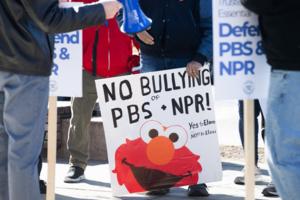
Editorial: Congress, defend PBS. We knew you could
"I'm very much concerned, as I know you are, about what's being delivered to our children in this country," said Fred Rogers to the U.S. Senate Subcommittee on Communications in May 1969. "We don't have to bop somebody over the head to ... make drama on the screen."
Public broadcasting, Rogers argued, was crucial because it cared about "trying ...Read more
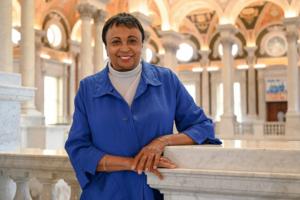
Trump fires Librarian of Congress and Baltimorean Carla Hayden
President Donald Trump fired Baltimore native and Librarian of Congress Carla Hayden on Thursday, according to statements from House Democrats.
The longtime Baltimorean, who served as the CEO of the Enoch Pratt Free Library from 1993 until President Barack Obama nominated her to head the Library of Congress in 2016, was the first woman, and ...Read more
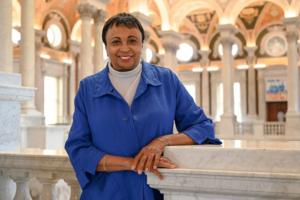
Trump abruptly fires Librarian of Congress Carla Hayden
President Donald Trump has fired Carla Hayden, the longtime head of the Library of Congress, in a move that Democratic lawmakers panned as “callous” and “ignorant.”
House Minority Leader Hakeem Jeffries, D-N.Y., described Hayden as “accomplished, principled and distinguished” in a statement Thursday night.
“Donald Trump’s ...Read more
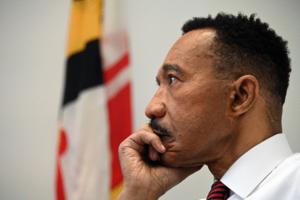
US Rep. Kweisi Mfume of Maryland says Trump, Musk should be arrested
U.S. Rep. Kweisi Mfume, who acknowledged his statement may sound “crazy and ludicrous,” said that President Donald Trump and adviser Elon Musk should be arrested.
The Maryland Democrat’s comments came during a Thursday afternoon press conference, during which most of the state’s congressional delegation voiced indignation over the ...Read more
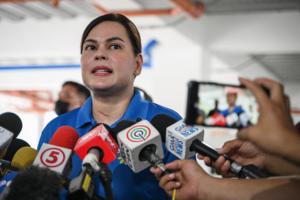
Marcos-Duterte feud at center of Philippine midterm elections
MANILA, Philippines — Philippine Vice President Sara Duterte won’t be on the ballot in Monday’s midterm elections, but the outcome could determine whether she keeps her job in a high-stakes contest centered around a feud between the country’s two most powerful families.
Following weeks of rallies across the country, more than 18,000 ...Read more
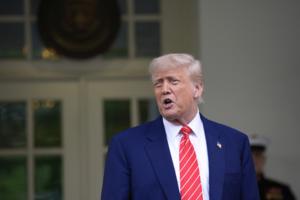
Trump to end Biden-era program to bridge digital divide
WASHINGTON — President Donald Trump said he would end a program that provides billions to extend internet access in underserved communities, casting it as unfairly providing grants on the basis of race.
“I have spoken with my wonderful Secretary of Commerce, Howard Lutnick, and we agree that the Biden/Harris so-called “Digital Equity Act�...Read more
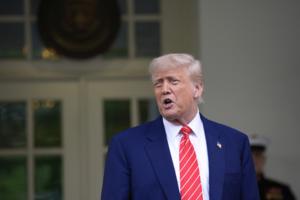
Trump seeks tax hike on wealthy earning $2.5 million or more
WASHINGTON — President Donald Trump is pushing lawmakers to increase tax rates on some of the wealthiest Americans as a way to offset other cuts in his signature economic package.
The president’s proposal calls for creating a new 39.6% tax bracket for individuals earning at least $2.5 million, or couples making $5 million, according to ...Read more
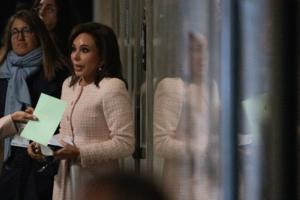
Trump's US attorney appointee Jeanine Pirro will leave Fox News and 'The Five'
Jeanine Pirro, co-host of the Fox News show “The Five,” will leave the network immediately after being appointed as interim U.S. attorney for Washington, D.C.
A representative for Fox News confirmed her departure after Trump announced Thursday on Truth Social he has named Pirro for the position currently held on an interim basis by Ed ...Read more
Trump's pick for surgeon general quit medical residency due to stress, former department chair says
President Trump's choice of Dr. Casey Means, a Los Angeles holistic medicine doctor and wellness influencer, as his nominee for surgeon general appears to mark another attempt to defy establishment medicine and longstanding federal policy.
Trump portrayed Means — a 37-year-old Stanford medical school graduate and author who describes herself ...Read more
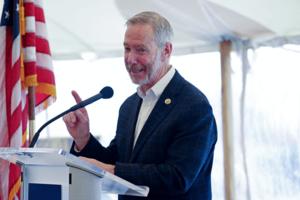
Stephen Lynch challenger emerges, says he won't accept PAC money
The race for the Bay State’s 8th Congressional District has become a contest in earnest, after an ex-staffer from former Gov. Deval Patrick’s office announced he will challenge U.S. Rep. Stephen Lynch for the Democratic Party’s nomination.
Patrick Roath, the Boston-based attorney and voting rights advocate, in making his campaign ...Read more
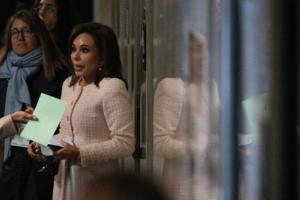
Trump names Fox News host Jeanine Pirro as top DC prosecutor
President Donald Trump said Thursday he’s appointing Fox News personality Jeanine Pirro as the interim U.S. attorney for the District of Columbia.
The president’s naming of a replacement for outgoing interim prosecutor Ed Martin was expected to come sometime Thursday, sources earlier told ABC News, who first reported Pirro was under ...Read more

Trump considering Fox News host Jeanine Pirro for DC prosecutor
President Donald Trump is believed to be considering Fox News personality Jeanine Pirro as the interim U.S. attorney for the District of Columbia.
The president’s naming of a replacement for outgoing interim prosecutor Ed Martin could come as early as Thursday, sources told ABC News.
Martin’s nomination was pulled earlier in the day after ...Read more
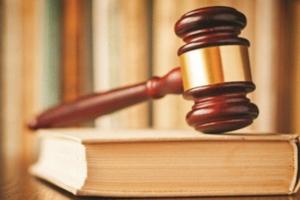
Federal court strikes down Alabama's version of congressional map
WASHINGTON — A federal court ruling in Alabama could mean another new congressional map for the state, as a panel of federal judges found the version the state drew in 2023 violated the Voting Rights Act because it diluted the political voice of Black voters.
The more than 500-page ruling from a unanimous three-judge panel said it was “not ...Read more
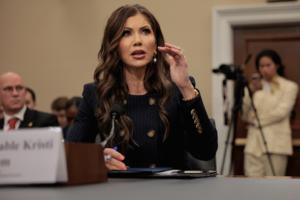
Republican senators question Trump's plans to change FEMA
WASHINGTON — Republican lawmakers expressed concerns Thursday over the Trump administration’s proposal to restructure the Federal Emergency Management Agency, calling into question moves that would roll back the traditional bulwark to assist states with disaster relief.
At a Senate Appropriations subcommittee hearing, Sen. Shelley Moore ...Read more
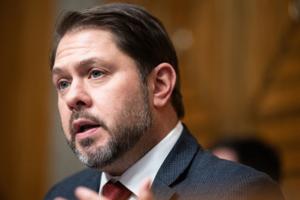
Senate stablecoin bill trips on cloture vote
WASHINGTON — The Senate didn’t muster enough votes to carry a stablecoin bill across a procedural hurdle Thursday, leaving in limbo a bill that only two months ago found bipartisan support in the Senate Banking Committee.
The 48-49 cloture vote on whether to proceed to the bill came after Democrats decided that bill sponsor Bill Hagerty, R-...Read more
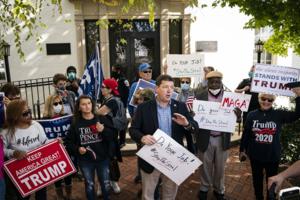
Trump yanks ex-Missouri GOP chair Ed Martin's nomination for top D.C. prosecutor
President Donald Trump said Thursday that he will replace Ed Martin, the former Missouri GOP chair whose controversial nomination to be Washington, D.C.’s top prosecutor has been in question since his Jan. 20 appointment as interim U.S. attorney.
Trump praised Martin but told reporters that he would be announcing a replacement for the ...Read more
LA holistic doctor and wellness influencer Casey Means is Trump's choice for surgeon general
LOS ANGELES — President Donald Trump's choice of Dr. Casey Means, a Los Angeles holistic medicine doctor and wellness influencer, as his nominee for surgeon general appears to mark another attempt to defy establishment medicine and longstanding federal policy.
Trump portrayed Means — a 37-year-old Stanford medical school graduate and author...Read more
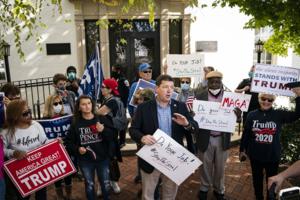
Trump gives up on Ed Martin pick for US attorney in DC
WASHINGTON — President Donald Trump said Thursday he would pull Ed Martin’s nomination to be U.S. attorney for the District of Columbia and would soon announce a replacement for the embattled pick.
The shift comes after a monthslong fight in the Senate to confirm Martin, who currently serves in the role on a temporary basis. Earlier this ...Read more
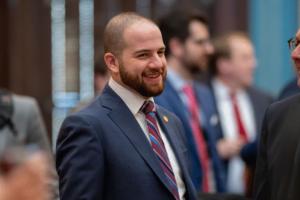
Michigan state Sen. Jeremy Moss, a Democrat, jumps into US House race in Oakland County
DETROIT — A Democratic state senator from Southfield is the first to jump into the race for U.S. House to succeed Rep. Haley Stevens, who is leaving behind her Oakland County seat to run for U.S. Senate.
Sen. Jeremy Moss, 38, launched his campaign for Congress on Thursday, pitching himself as a disruptor of the status quo from the Southfield ...Read more
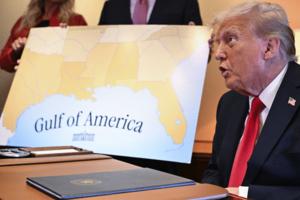
House Republicans pass Gulf of Mexico renaming bill
WASHINGTON — Legislation that would rename the Gulf of Mexico to the Gulf of America is “embarrassing,” “unserious” and a waste of time and taxpayer money, according to its Democratic detractors. But it sailed through the House on Thursday, passing on a mostly party-line vote.
Rep. Don Bacon of Nebraska was the lone Republican to ...Read more
Popular Stories
- Pardons for friends, retribution for foes
- Being a mom in Congress is hard. But it doesn't have to be, members say
- 250 years after saving America's bacon, French have little taste for what Trump dishes out
- Economists question the goals, approach of US tariffs
- Facing self-imposed budget cuts, Republicans in Congress mull the future of Medicaid


























































